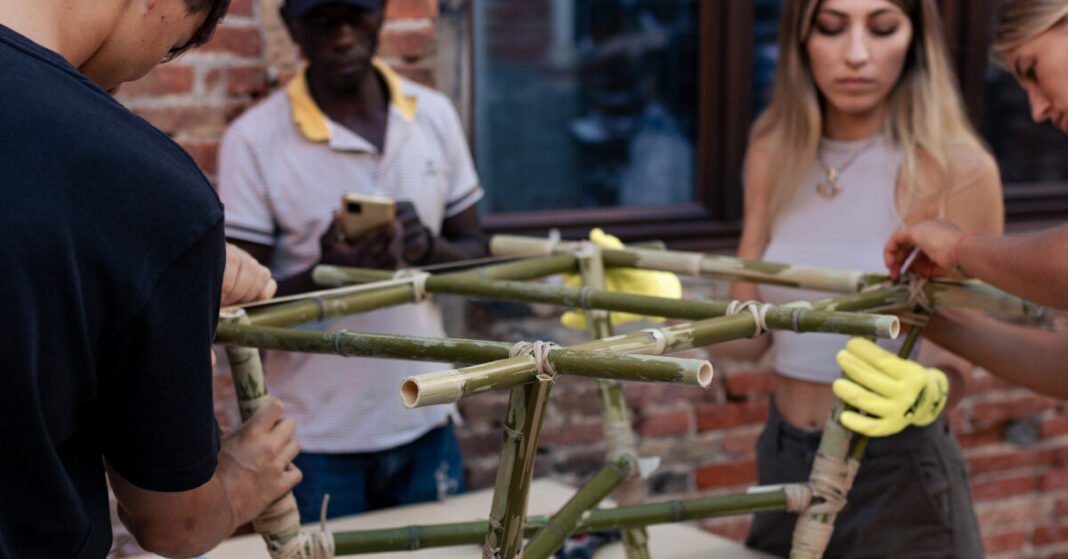REDEFINING DESIGN EDUCATION FOR URGENT CHANGE
The IED Master program in Social Ecological Design emerges as a vital alternative to design education, aiming to confront the complex challenges of our time. For Michael Kaethler, coordinator of the program, the traditional design curriculum, often shaped by market trends or conventional perspectives, does not contribute enough to the urgent transformation needed to address today’s crises. From accelerating climate change and biodiversity loss to widening social inequalities and the creeping rise of authoritarianism, the challenges are immense and interconnected.
Despite its problem-solving prowess, academic design programs sometimes risk lacking the ability to adapt to new approaches required for socio-ecological change. This critical gap is what the Social Ecological Design program aims to fill as Michael Kaethler revealed in an exclusive interview with designboom. The program is built on the idea that education itself should ‘assist in unlearning the status quo,’ Michael Kaethler tells designboom, pushing for new forms of knowledge through emancipation, experimentation, and breaking down old structures.
‘We don’t need more education but rather, we need different education,’ Kaethler continues. ‘We need alternative modes of building and sharing knowledge in order to produce the forms of meaningful knowledge that can engage with these crises.’
the Social Ecological Design program emerges as a vital alternative to design education | all images courtesy of IED
IED MASTER PROGRAM IN SOCIAL ECOLOGICAL DESIGN
Within a 16-month period, the European Institute of Design (IED) in Torino offers a pioneering Master’s program in Social Ecological Design: Regenerative Practices for Everyday Life. As coordinator of the program, Michael Kaethler — a sociologist of design with a background in social anthropology and human rights research — leverages his expertise to root the curriculum in a profound understanding of societal change and human agency. The course positions itself as a critical response to the complex challenges of our time, offering a deep dive into fostering connections between humans, communities, and ecosystems. It’s designed to equip a new generation of designers with the tools to actively engage in meaningful social and ecological transformation.
‘We study transitions and how design can provide important levers for change. We explore the importance of creativity in opening up new forms of relations, new forms of understanding and communicating and ultimately how it can offer generative action towards meaningful social ecological transformation. It’s not just about knowledge—it’s about recovering a sense of agency,’ explains the program’s coordinator.
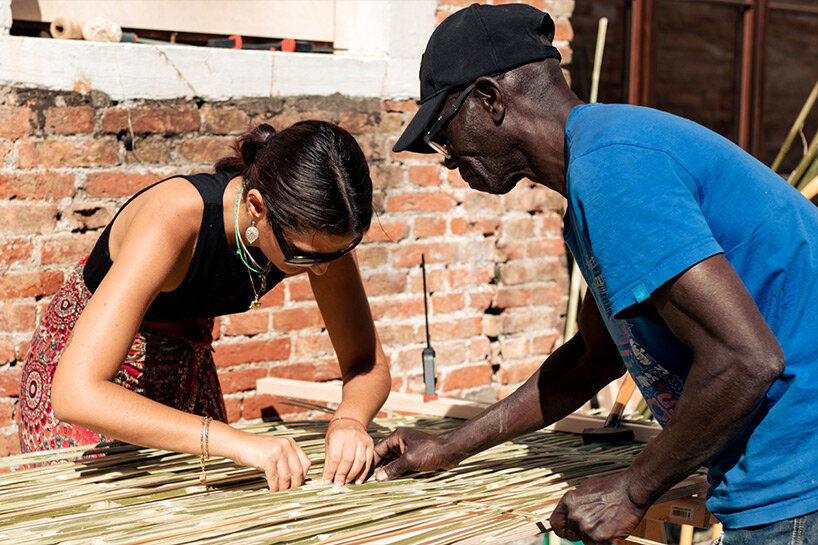
the course positions itself as a critical response to the complex challenges of our time
CULTIVATING THE NEXT GENERATION OF DESIGNERS
The program’s core philosophy centers on a radical re-evaluation of design’s role, seeking to restore fundamental capabilities for ideological and societal engagement. This approach challenges the comfortable notion of design as purely aesthetic or commercially driven, repositioning it as a critical tool for societal survival. ‘It feels absurd to be designing new chairs or lamps when our house is on fire,’ he states, emphasizing that the overlapping social, ecological, and economic crises are ‘real design problems!’ This sentiment is rooted in a historical critique. Kaethler notes that after the Cold War, design largely ‘favoured irony over ideological engagement, swapping grand social visions for playful contradictions.’ This shift, he argues, turned design into a mere service provider for the highest bidders.
The IED program directly counters this by bringing back generative critique – a design practice that doesn’t just analyze problems from the sidelines, but actively makes, intervenes, and creates tangible alternatives. ‘It is not simply a question of adding “criticality” to design but rather building up a culture of design that is essentially reflective in its engagement with the world and these reflections include questioning fundamental tenets such as values and orientations.’
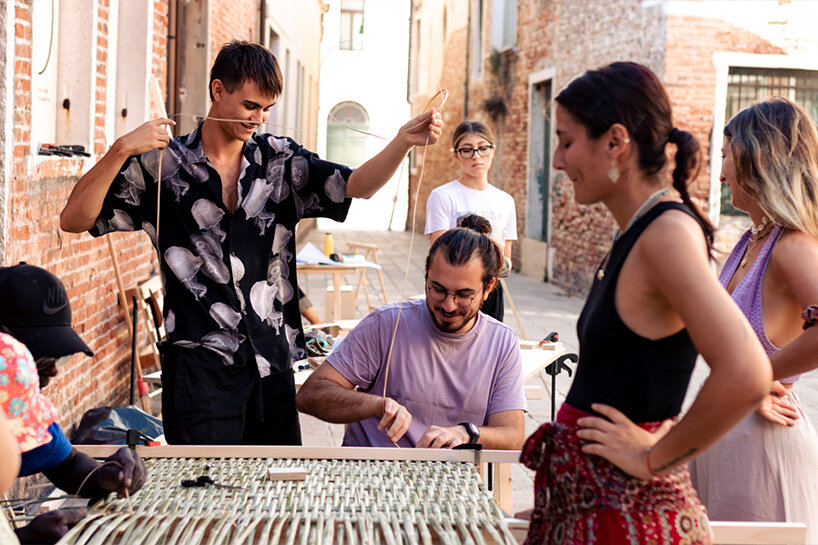
the new generation of designers get equipped with the agency to tackle urgent societal and environmental issues
To achieve this, the curriculum employs its unique ‘OUT THERE’ methodology, pulling students out of traditional classrooms and into immersive fieldwork across diverse Italian regions, including the off-grid Alps, Tuscany, and Sicily. This direct engagement with communities and ecosystems fosters a versatile skill set, spanning crucial areas like biomimicry, multispecies thinking, cross-cultural communication, cultural ethnography, creative activism, systems analysis, and inclusive design. Students work closely with local stakeholders, craftspeople, experts, and peers, applying principles of social and ecological design through analysis, interpretation, and practical application. The program’s structure guides them through three distinct phases: exploring ‘OUT-of-the-box’ ideas in the first trimester, immersing themselves ‘OUT in the field’ and ‘OUT of their comfort zone’ in the second, and finally challenging them to be ‘OUT on their own’ in the third trimester.
‘A big part of our vision is that learning is driven and directed by the student’s own ambitions and interests, which we nourish through one-on-one mentoring as well as regular moments of co-reflection and dialogue. We pair this with an intensive program of lectures, workshops and immersive fieldwork that pushes students to tackle difficult subjects and contexts beyond superficiality. Nothing inspires one to learn quicker than working in real life contexts,’ Kaethler emphasizes. ‘When design education becomes rooted in the real world, design becomes a fundamental human act of shaping one’s world to express one’s needs—tangible or intangible. This is where design can have a positive impact.’
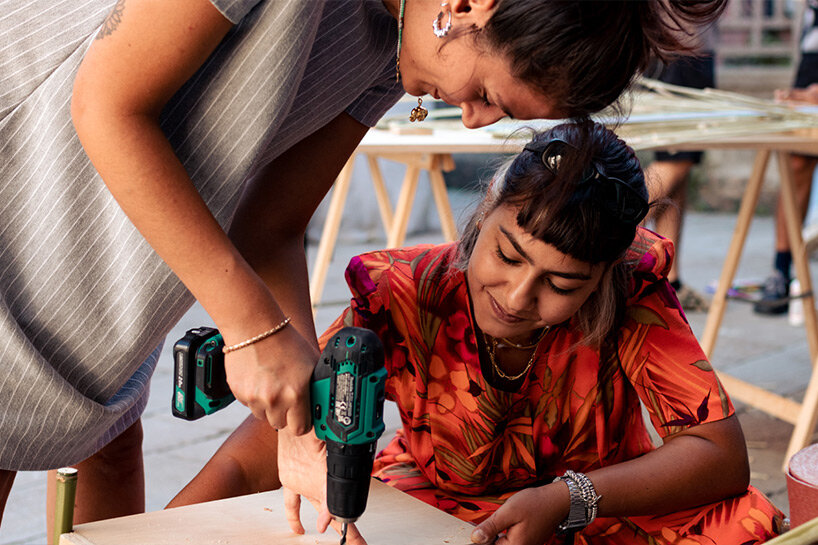
the program emphasizes hands-on learning, pushing to bridge theoretical concepts with real-world application
Graduates are prepared for a professional landscape in constant flux, equipped with dynamism, transversal skills, and a confidence that matches competence. Beyond the intensive coursework, IED supports students with practical experiences like internships and leverages its extensive network of partnerships and alumni to ensure they are truly career-ready for diverse and impactful roles.
‘It sounds cliché but ambition and openness are more important than any specific experiences. Overall, we believe in balancing intellectual knowledge with practical knowledge and this means being willing to challenge oneself with theory in the morning and in the afternoon learning new maker-skills… and in the evening cooking dinner with members of the local community.’
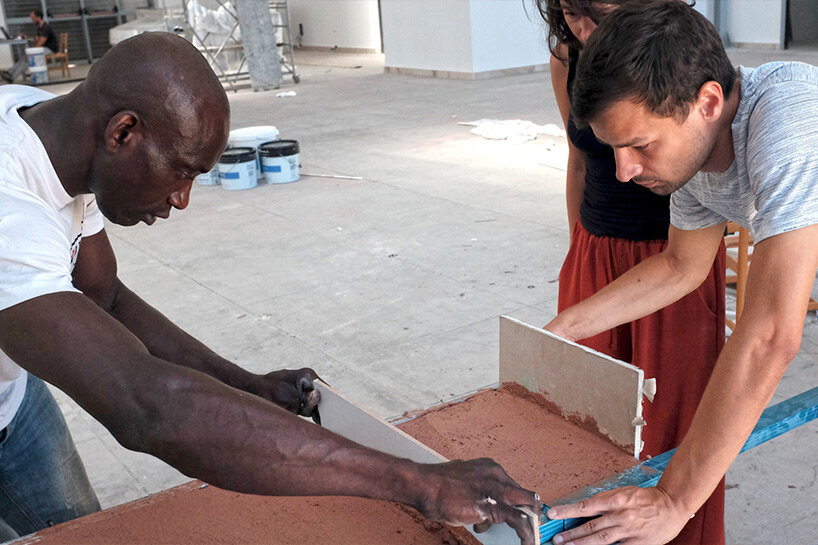
collaborative workshops cultivate a versatile skill set
Looking ahead, Michael Kaethler envisions the program fostering a strong alumni community that continues to support collective engagement with critical social and ecological issues. His ambition extends beyond the IED, aiming to inspire a broader paradigm shift in design education globally.
‘More broadly, I hope we inspire other design institutions to embrace an emancipatory, embedded, and autonomous approach to design education,’ Michael Kaethler concludes. ‘The world needs it.’

